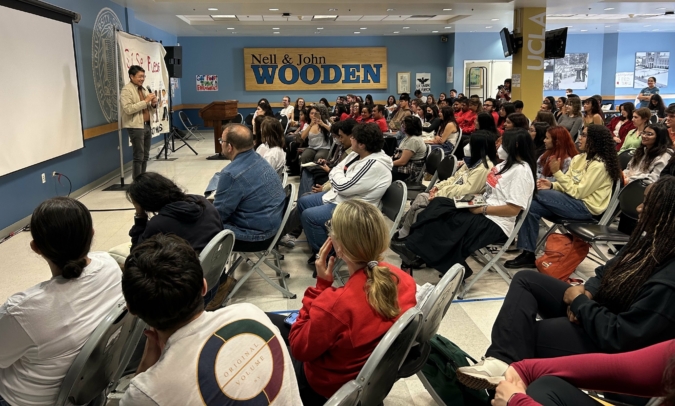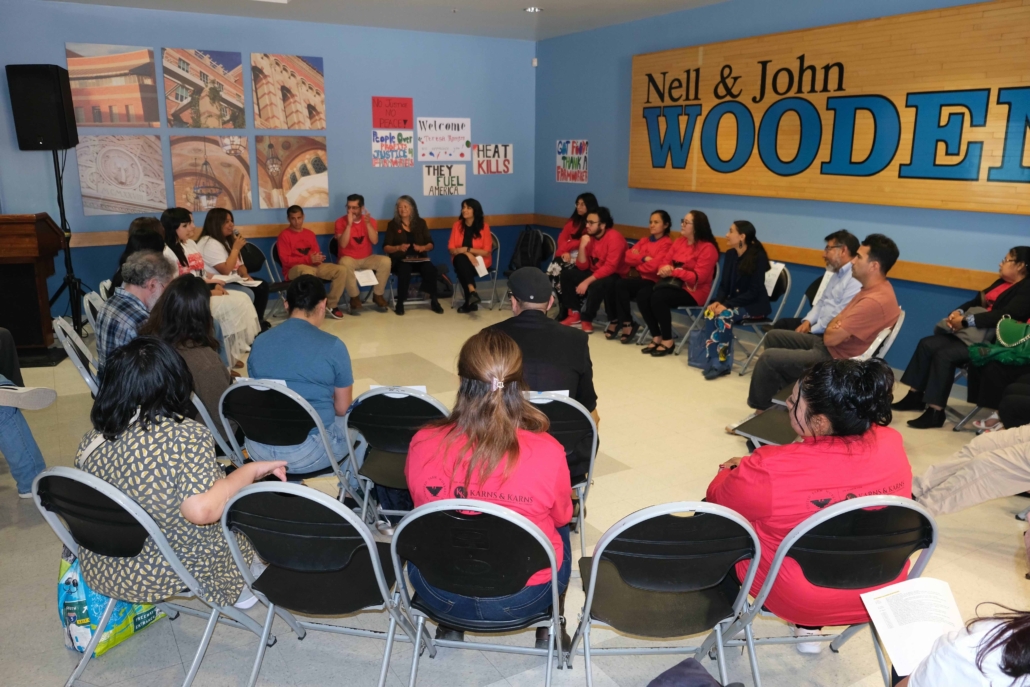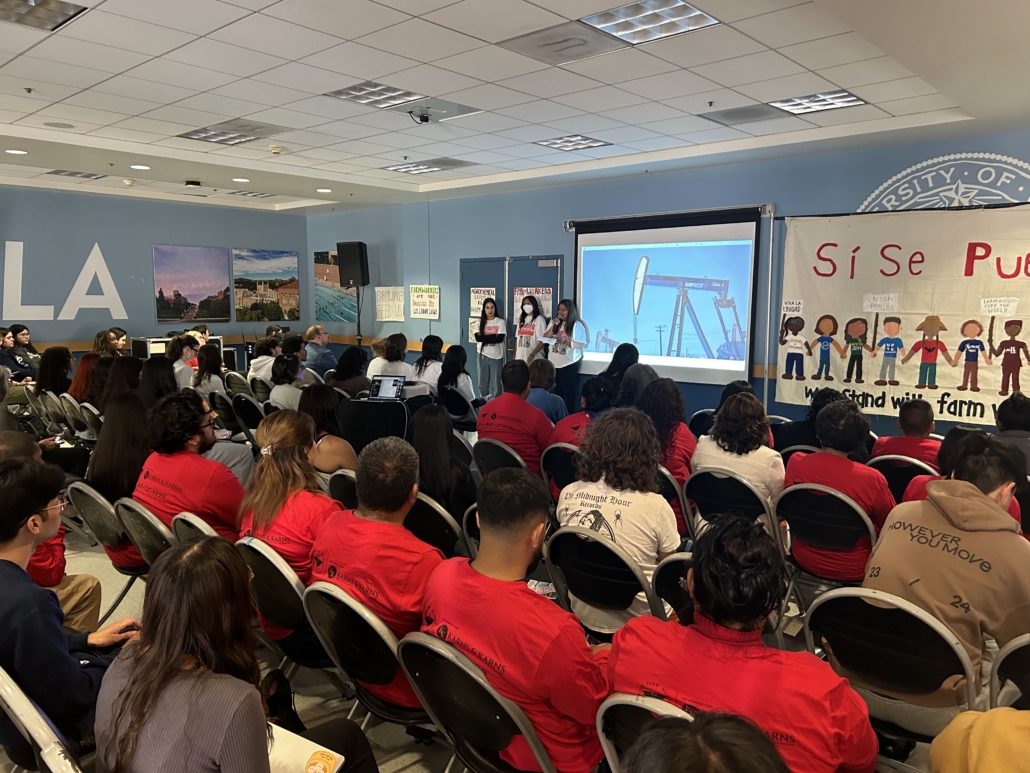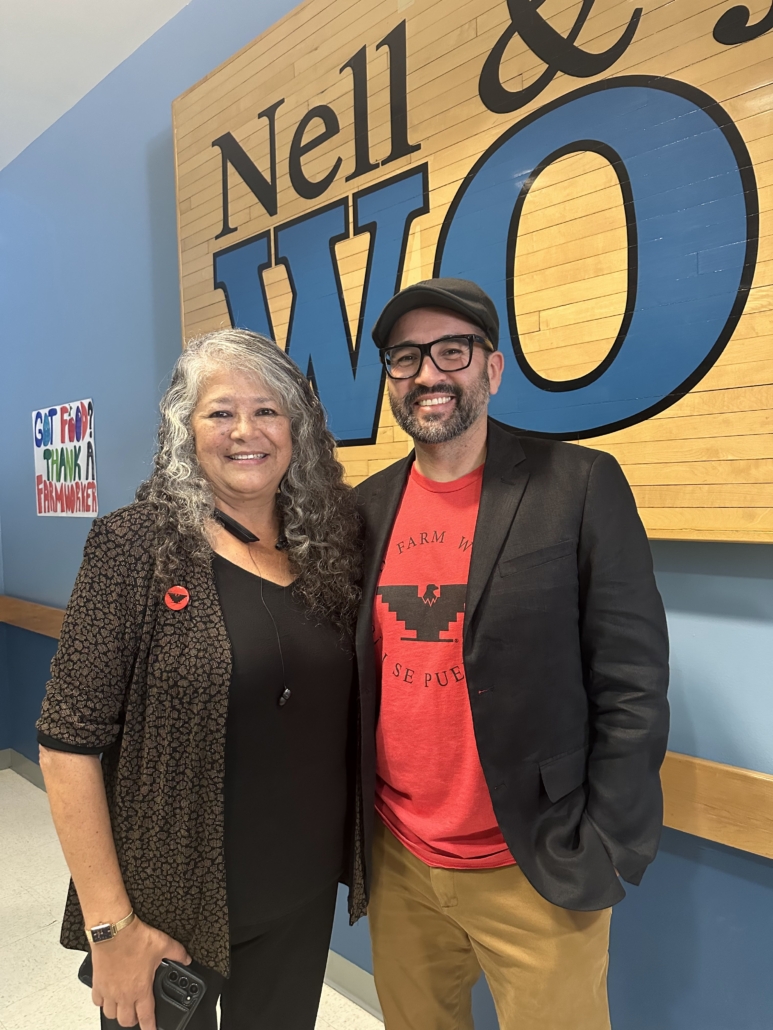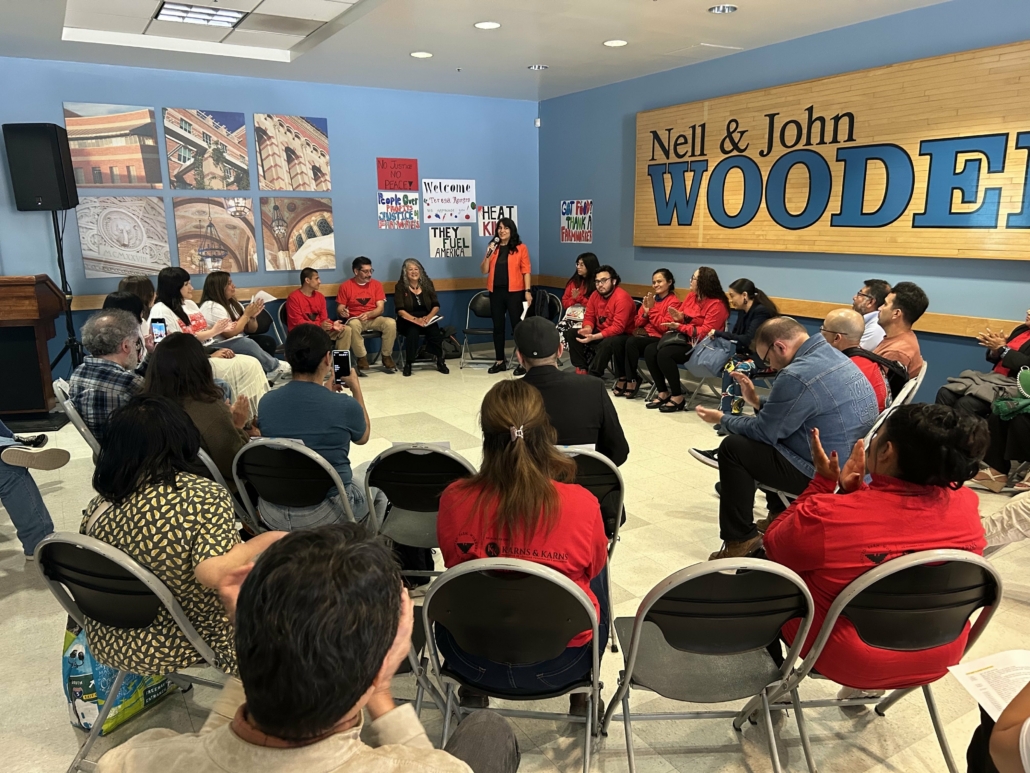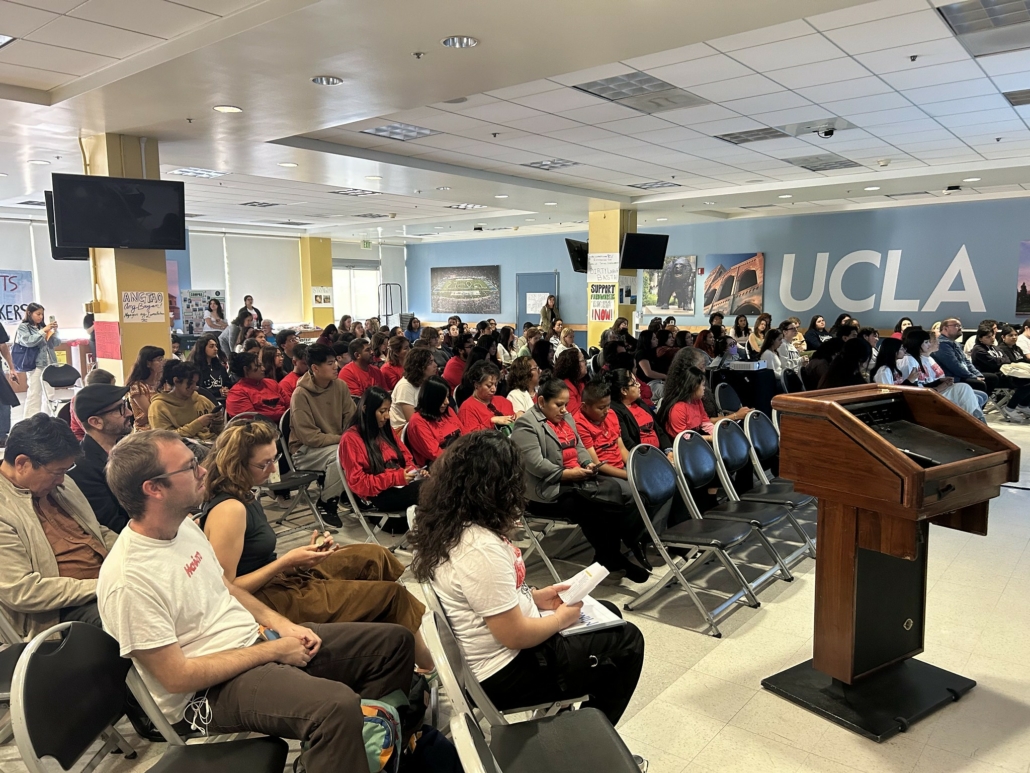UCLA Labor Studies co-hosts UFW labor rally for farmworkers
Students and faculty gathered at UCLA’s Ackerman Union to hear worker testimonies
Lesly Ayala | May 17, 2024
“Si Se Puede, Si Se Puede,” chanted a crowd of over 100 students, faculty and organizers as they heard compelling stories from farmworkers at a community labor rally in support of the United Farm Workers (UFW) co-hosted by UCLA’s labor studies program on April 24 at Ackerman Union.
The rally brought together UFW President Teresa Romero, UFW Director of Organizing Roman Pinal and 18 farmworkers who had traveled to the UCLA campus from Central California on a Southern California tour to join six student organizations led by Students for Farm Workers at UCLA, unions and departments across UCLA. Participants heard worker testimonies and demonstrated a powerful display of community strength and solidarity during a critical organizing time for the iconic union.
“This event was significant because UCLA students participated in the historic UFW boycott and organizing drives of the 1970s and César Chávez, the first UFW president, came to UCLA to speak about those campaigns,” said Labor Studies Chair Chris Zepeda-Millán, “And now, we have Teresa Romero once again come to campus to speak with us about the union’s new and exciting organizing campaign.”
“What was most impactful for me was that the event helped solidify the long history of solidarity between the UFW and UCLA students. It was a historic gathering that will hopefully launch another era of UCLA student activism in support of the United Farm Workers union,” he added.
The event comes on the heels of a new law passed last year in California that allows farmworkers to vote for union representation by signing union cards called card checks. Despite this momentous win, growers are pushing back by spending millions of dollars to scare workers. The community labor rally was organized to help bring student support for farmworkers as they experience a rebirth of union growth.
“With the recent passage of remote voting for farmworkers to vote for a union through authorization cards, the UFW is in a position to rebuild its union of farmworkers. The growers no longer have the upper hand in hiring union avoidance law firms and contractors to bring an atmosphere of fear through captive audience meetings,” said Larry Frank, the capital campaign director at the UCLA Labor Center and former organizer at the UFW.
In the past, captive audience meetings had hindered the union’s organizing efforts through mandatory workplace meetings set up to intimidate workers and spread misinformation against joining the UFW.
“As a result, the UFW, in just the past few months, has been certified on four separate branches representing 1300 farmworkers. The UFW is reaching out to students and others who played a critical role in their past to again provide the support needed to address conditions, wages and benefits in the fields of California,” Frank added.
UFW President, Teresa Romero, the first Latina and first immigrant woman to become president of the UFW (and first national union in the United States), spoke on the issues farmworkers are facing, the development of labor laws in California, and how students and organizers can support their recent campaigns.
“If [growers] are stealing your salaries, if they are not paying you what you deserve, if they are sexually harassing you, if they are insulting you, if they are giving you less hours just because the supervisor is in a bad mood, the [farm]workers don’t say anything,” said Romero.
“And if you think of that, working under those circumstances day in and day out, most of us would not last. So, the fact that farmworkers continue to do it, I wish we get to the point one day where farmworkers are going to see themselves not as labor workers, not as something that everybody can do — they’re professionals,” she added.
UCLA’s Latina Futures 2050 Lab co-founder Veronica Terriquez, also in attendance, thinks Romero’s leadership is pivotal at this moment.
“I think it is important that we acknowledge and celebrate the leadership of Teresa Romero,” said Terriquez. “The UFW has a history of being at the forefront of fighting for farmworkers’ rights. Their work continues to be important today, as there are growing efforts to advance the rights of agricultural workers, including those Latina and Indigenous farmworkers whose health has been negatively impacted by the use of harmful pesticides in the fields. I am hopeful that she will pave the path for future Latina leaders in the labor movement.”
Shortly before the community rally, over 50 supporters representing student organizations, unions and departments across UCLA gathered for a meet and greet event with Teresa Romero and helped raise $20,000 for the UFW to continue their efforts on the fields.
The event was co-sponsored by UCLA Labor Studies, UCLA IRLE, the UCLA Labor Center, the Chicano Studies Research Center-Latina Futures 2050 Lab, California Nurses Association, UAW Region 6, UAW 4811, University Professional & Technical Employees (UPTE), UCLA Cesar E. Chavez Chicana/o and Latin American Studies Dept., LA Food Policy Council, Students For Farm Workers at UCLA (SFFW), Westwood Food Cooperative (WWFC), Student Labor Advocacy Project at UCLA (SLAP), Compas at UCLA, League of United Latin American Citizens at UCLA (LULAC), and Anakbayan at UCLA (ABUCLA).
Photos: UFW Rally Photo Album
Video: UFW Rally Recap Reel

